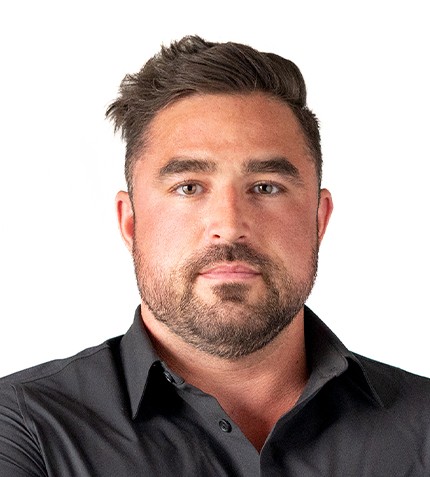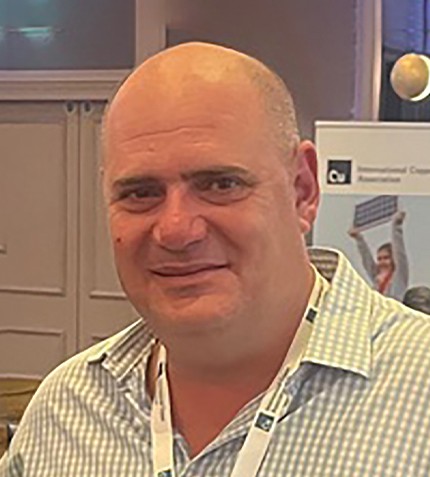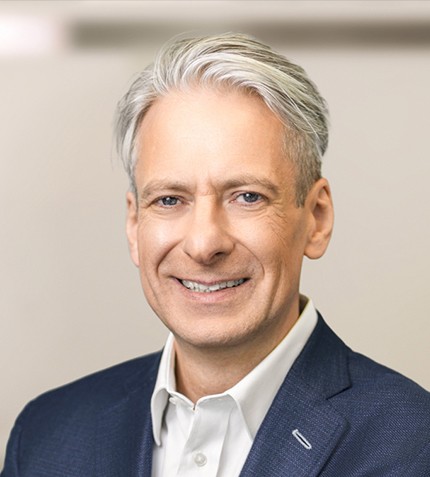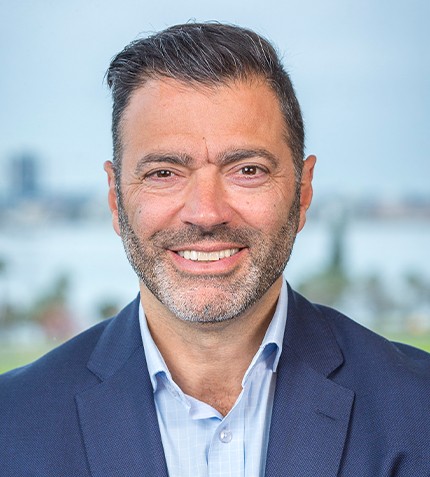
"SOOG has been extremely active in the infrastructure security space over the past few years."
Samuel Alabi
CHAIRMAN AND CEO, SEVEN OCEANS OIL AND GAS
Can you introduce Seven Oceans Oil and Gas and give an overview of how the company fits into the Nigerian oil and gas ecosystem?
Seven Oceans Oil and Gas (SOOG) was incorporated in 2009 with the vision to be a leading provider of affordable, reliable, and sustainable energy and related services in West Africa in the medium term, and globally in the long term. The company started by providing logistical support to IOCs, and then expanded its portfolio to also include energy infrastructure security services. We then developed our downstream trading and retail expertise and started to operate retail stations under the NNPC franchise, such as the mega gas station in Yenagoa, Bayelsa State. In 2020, our E&P arm, together with our strategic partners, participated in the competitive bidding round for the marginal fields where we were successful. We are currently developing our asset with first oil due in 2025. Today, we cover the energy value chain through upstream activities such as the production of crude oil and natural gas, midstream activities such as refining and petrochemicals, downstream activities such as trading and retail of refined petroleum products and natural gas, and logistics and services activities such as vessel operation and management.
What has been driving demand for SOOG’s services?
Demand for SOOG’s services has been driven by the exceptional results we deliver to our customers. For example, when we started providing security services to a leading indigenous oil and gas E&P company in 2018, we identified approximately 120 illegal infractions along the 108 km bulk line, which meant that hardly any product was reaching the export terminal. However, within a space of nine months following our engagement, we were able to turn it around by understanding and then addressing the root cause of the problem. Communities play a significant role in pipeline security, and therefore, proper community engagement, education, and management are critical. SOOG has been extremely active in the infrastructure security space over the past few years.
What opportunities and challenges lie in the downstream gas sector?
SOOG’s downstream engagement will be focused on transition energy products such as CNG and LPG. The company’s strategy is to take on the ‘Decade of Gas’ challenge, and we are actively participating in infrastructure development and deploy mobile stations for CNG and LPG to enable gas utilization across Nigeria.
The main challenge in the downstream gas sector is that there is an infrastructure deficit as the pipelines do not cover the entire country. To effectively enable gas utilization across the country, pipelines will have to be extended and there will be a necessity for gas stations every 200 km, which will require significant investment. SOOG is working closely with foreign and local partners to design technologies and ways that will enable us to move products to last mile places where it is most needed.
A second challenge is public perception, as gas is not widely accepted and is not completely understood by society. The government and the private sector need to work together to promote the adoption of gas by educating society on the benefits of gas and removing unfounded fears that exist around this product.
What are SOOG’s objectives for 2024 and beyond?
SOOG is currently focused on playing our part in contributing to improving Nigeria’s crude oil and gas production capacities by bringing on-stream our gas asset, expanding our downstream network of stations, and improving our midstream service capabilities, such as by adding aerial surveillance to our security offerings.
One of the major factors supporting the existence of illegal refineries in the Niger Delta is the shortage of petroleum products in the region, driving local communities to find alternative and illegal means of sourcing petroleum products. One of our strategies to curb pipeline vandalization was to establish a modular refinery in the Niger Delta and use our logistical experience to provide petroleum products to communities in the region. For this plan to be effective we need support from IOCs and indigenous oil companies who have access to large amounts of crude oil, but unfortunately, our conversations have not been successful to date. Thus, our modular refinery plans have been put on hold while we continue to have discussions to secure adequate crude oil supply.










